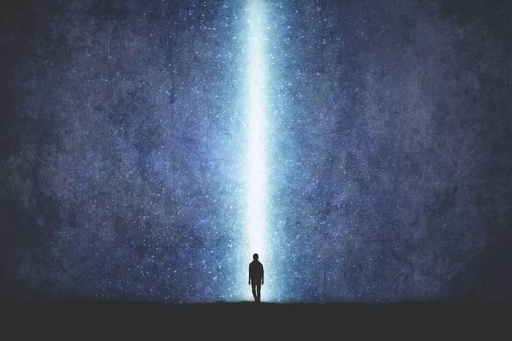This is one of the series of writings from Jian Yi Shu Yuan titled “Reflections on Self-Understanding through Thought and Learning”.
In the Spring and Autumn period, in the ninth year of Duke Ding of Lu (501 BC), after a divination, the fifty-year-old Minister of Zhongdu, Kong Qiu (Confucius), abandoned his previous ambitions, ceased reciting the “Li” (Rites), and stopped editing historical texts to study the “Zhou Yi” (I Ching). The “Yi Wei: Kun (Qian) Zao Du” records: “Zhongni, a man from Lu, was born without knowledge of the Yi. By chance, he divined his fate and received ‘Xuan’ (Travel). He sought advice from the Shang Niu (Qu) family, saying: ‘You have holy wisdom but no position.’ Confucius wept and said: ‘It is heaven’s command! The phoenix does not come, and the river does not bring the map. Alas, it is the mandate of heaven!’ After sighing, he ceased his ambitions, stopped reading the ‘Li’, and ceased editing history. At fifty, he studied the ‘Yi’ and composed the ‘Ten Wings’ to clarify it.”
One thousand one hundred sixty years later, in the Tang Dynasty, in the second year of Longshuo (662 AD), at an inn in Nanhai, Guangdong, a twenty-four-year-old woodcutter, Hui Neng, while selling firewood, became enlightened upon hearing a guest recite the “Diamond Sutra”. He then traveled north to seek the Dharma. Hui Neng received the transmission of the robe and bowl from the Fifth Patriarch, Hong Ren, inheriting the East Mountain lineage and establishing the Southern School, promoting the teaching of “directly pointing to the human heart, seeing nature and becoming a Buddha”.
Whether through divination or listening to scriptures, these seemingly ordinary events changed the life trajectories of two sages, allowing us today to better uphold culture. Their choices were both accidental and inevitable. A thousand years later, as we study the classics, we see the fruits of the sages’ initial choices. If we trace back through time, we can vaguely understand the inevitability of their various choices based on their circumstances.
You are your choices.
Whether we are aware of it or not, today we are the result of our own choices. The difference lies in the clarity of understanding. Those who are confused do not understand their original intentions, living their lives in ignorance and chaos. Even if they make so-called choices, they merely follow the arrangements of fate blindly. Because of this state of ignorance, they fear the unknown ‘fruits’ of their choices, neglecting the ’causes’ that lead to those fruits. In contrast, the enlightened understand that the sense of responsibility and mission bestowed by heaven makes them aware from the outset that ‘if the causes are not true, the fruits will be convoluted’ (from the “Lankavatara Sutra”). They fear the causes and thus attain the correct fruits. Hence, there is a famous saying in Buddhism: ‘Bodhisattvas fear the causes, while ordinary people fear the fruits.’
Because of the cyclical nature of cause and effect, and because at every moment we are making choices whether we can take charge or not, today, you and I are the aggregation of countless choices we have made. Similarly, when we cannot take charge, our ‘choices’ are often those that are chosen for us. The choices referred to in Chinese culture are those made under the premise of being able to take charge. This ability to take charge means being the master of oneself, to take charge while alive, to take charge in the present moment!
In the expression of Chinese culture, not understanding is to be confused, and confusion is a kind of illness. To make the right choices and to be one’s own master, one must first know who one is. The cultural and philosophical history of China over thousands of years can be distilled down to the question ‘Who am I?’. In the face of this question, everything else becomes unimportant. Until this question is resolved, our so-called ‘choices’ are merely arrangements made by our deluded minds and fate. At this juncture in life, only through wisdom can we break through confusion and awaken, transcending fate to attain liberation of body and mind.
Where does wisdom come from? Confucius said: ‘Those who are born knowing are the best; those who learn to know are next; those who are troubled and learn are next; and those who are troubled and do not learn are the lowest.’ This statement expresses several points: first, wisdom is innate, and those with superior roots possess it from birth; second, innate wisdom can be awakened through later learning. Furthermore, aside from those with superior roots, whether or not to learn is the only choice we can make before we understand who we are. The distinction between confusion and enlightenment lies in a single thought; when you truly begin to choose wisdom, the obstacles attached to you will naturally be discarded. As for those who are ‘troubled and do not learn’, although it is regrettable, not learning is also a choice.
The value of choosing to learn and practice culture lies in helping us awaken wisdom, thereby understanding life.Life is never a journey towards death; life carries responsibility and duty.In Chinese culture, every person’s life is a journey towards completeness, infinity, and eternity. Because of this, every choice you make shapes who you are today; you are your choices.

